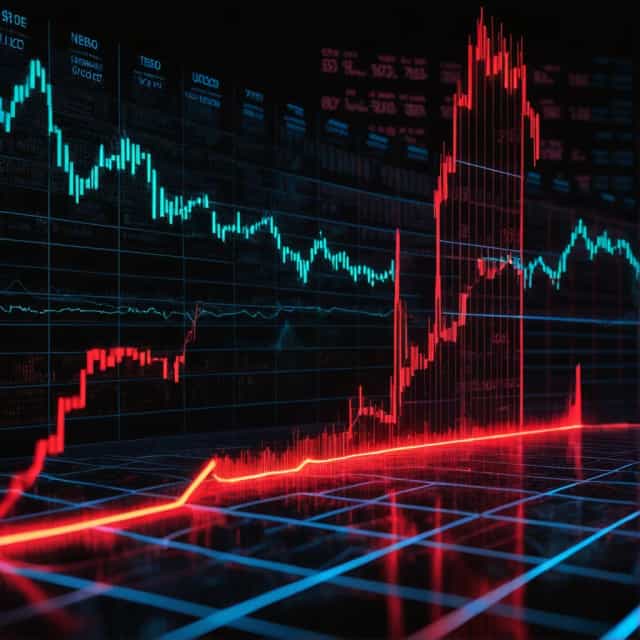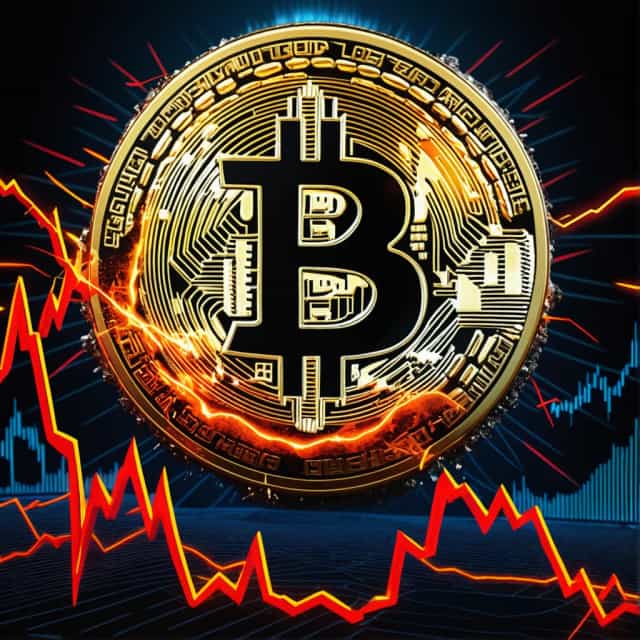
Image source: Block Media
South Korean Stock Markets Decline Following Record High Amid U.S.-China Trade Tensions
KOSPI Index Retreats After Recent Peak
South Korea's KOSPI Index, the nation's benchmark stock market measure, experienced a notable downturn on Tuesday, retreating sharply after reaching a record high during the previous trading session. Escalating tensions in U.S.-China trade relations, fueled by remarks from U.S. President Donald Trump, triggered sentiment-driven selling, pulling the index down by more than 1%.
The KOSPI closed at 3,580.99, down 29.61 points or 0.82% from its prior all-time high close of 3,610.60. The index started the session at 3,550.08, plunging 60.52 points—or 1.68%—from the previous day’s opening, and extended losses throughout the trading day. At one point, intraday losses exceeded 2%, marking a sharp reversal in investor sentiment.
The record-setting session on Monday had been fueled by robust gains in key blue-chip stocks such as Samsung Electronics and SK Hynix. However, the market saw profit-taking following South Korea’s extended holiday weekend. Concerns over U.S.-China trade frictions provided additional downward pressure, prompting a significant sell-off.
Foreign Investor Sentiment Shifts Amid Trade Uncertainty
Although Tuesday’s pullback was stark, market analysts reflected that the overall decline was not as drastic as it could have been. Jae-won Lee, a market researcher at Shinhan Financial Investment, explained, “The escalation of U.S.-China trade tensions over the weekend raised alarms, yet President Trump’s signal of willingness to open further dialogue helped mitigate the broader impacts on Asian markets.” He added that foreign investors, who had been net buyers of KOSPI for the preceding five sessions, turned into net sellers on Tuesday, contributing to a tempered loss of around 1%.
KOSPI trading data underscored this shift in activity. Individual investors emerged as strong buyers, purchasing a net 1.3743 trillion won worth of shares. Conversely, foreign and institutional investors sold shares valued at 995 billion won and 485.8 billion won, respectively.
The selloff was unevenly distributed among large-cap stocks. Doosan Enerbility rose 4.16%, LG Energy Solution posted a modest gain of 0.14%, and Samsung Biologics saw a 0.59% uptick. On the declining side, semiconductor giants suffered losses, with Samsung Electronics down 1.17% and SK Hynix plunging by 3.04%.
Tech Sector in Focus: Samsung Electronics Earnings Eyed
Market attention now shifts to forthcoming corporate earnings amid mixed signals in the technology sector. Commenting on this, Jae-won Lee noted, “The U.S. tech sector is under pressure due to heightened fears over China’s restrictions on rare earth minerals. Though foreign investors broke their 16-session buying streak of Samsung Electronics, the declines in Samsung Electronics and SK Hynix were more muted than anticipated.”
The earnings season is expected to take center stage, with a particular focus on technology behemoth Samsung Electronics, which is set to unveil its third-quarter earnings preview tomorrow. Analysts suggest these results may provide essential clues about the resilience of the domestic tech sector amidst global headwinds.
KOSDAQ Index Resilient Despite Early Weakness
Unlike the broader KOSPI, South Korea’s secondary market, the KOSDAQ Index, managed to close marginally higher. The index ended the day at 860.17, gaining 0.68 points or 0.08% compared to Monday’s close of 859.49. However, the index had initially opened lower at 845.76, down 13.73 points or 1.60%, before a steady recovery ensued.
Much like KOSPI, individual investors were the driving force behind KOSDAQ’s resilience, net purchasing 90.4 billion won worth of shares. In contrast, foreign and institutional investors sold stocks worth 96.6 billion won and 300 million won, respectively.
Performance across KOSDAQ's leading stocks was mixed. EcoPro BM soared by 4.90%, while Rainbow Robotics and HLB saw substantial gains of 4.40% and 6.35%, respectively. On the downside, Alteogen declined by 3.69%, ABL Bio dropped 2.56%, and Samchundang Pharm slipped 2.87%.
Korean Won Weakens Against the U.S. Dollar
On the currency front, the South Korean won weakened against the U.S. dollar amidst a backdrop of renewed global trade fears. By the close of after-hours trading on Tuesday, the won-dollar exchange rate rose by 4.8 won to settle at 1,425.8 won per dollar, compared to the prior session’s close of 1,421.0 won per dollar.
Economists caution that the combination of rising geopolitical tensions and foreign outflows could continue to weigh on South Korea’s financial markets in the coming weeks. Investors are closely watching key corporate earnings reports and developments in U.S.-China trade negotiations for further direction.
The unfolding dynamics in South Korea's financial markets reflect broader global uncertainties, underscoring the impact of geopolitical tensions and investor caution as crucial factors shaping market performance.










